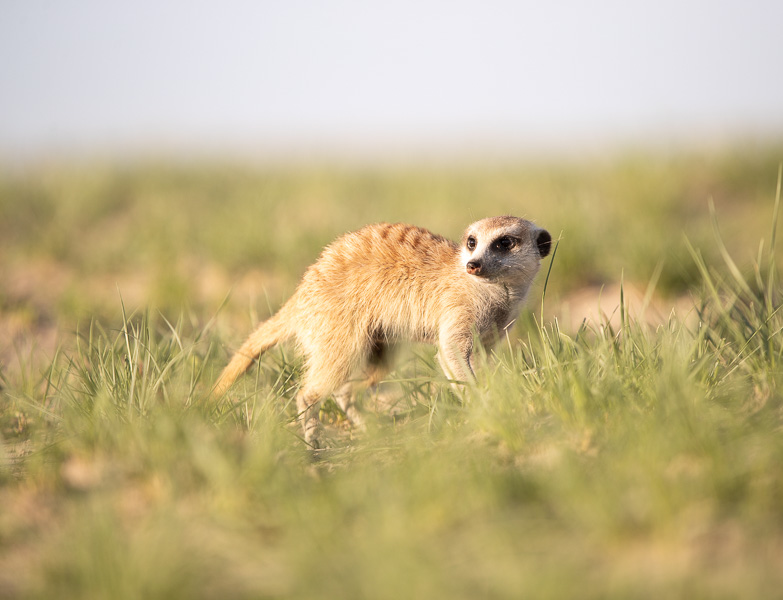
Makgadikgadi now known as a salt pan was previously an enormous lake which covered an area larger than Switzerland and it dried up thousands years ago. It is located at the South West of Okavango Delta and North East of the Central Kalahari Game Reserve. Most months of the year Makgadikgadi is dry and during the rainy months from November to April the area is covered with water and grass attracting thousands of birds such as flamingos, ducks and various wild animals.
A source of water for Makgadikgadi is 330km at Nata River and 114km at Boteti River. Plant life in Makgadikgadi include a thin layer of blue-green algae, salt marshes, grassland, shrubby savannah and a lot of baobab trees.
During the harsh dry season (June to December) animals are scarce and this is the best time to explore the beautiful landscapes of Makgadikgadi let alone the meerkat experience. Once the rains start the Makgadikgadi becomes the habitat of migrating animals such as zebras, wildebeest and migratory birds such as geese, great white pelicans and great flamingos. The grassland on the fringes of the pan are the home for reptiles such as tortoise, snakes and lizards. The most common activities around the Makgadikgadi include quadbikes, sleep out in the pans, meerkat experience and exploring the Kubu island by 4×4 vehicles.
BOTETI RIVER
Boteti River derives flow from the Okavango Delta through the Thamalakane river in Maun. During the rainy season, the Boteti river flows into the Makgadikgadi pans giving life to the area. When it is dry in the Makgadikgadi, wild animals such as zebra and wildebeests migrate to the Boteti river to quench their thirst and escape the harsh climate of the pans. There are many lodges concentrated along the Boteti river and there is also Khumaga Campsite in the area.
